Sustainability and resilience
We regard the sustainable development of rural areas and agriculture as the only possible response to global change and the corresponding challenges. In this way, we relate our work to a number of the UN's formulated goals for sustainable development (SDG):
A fundamental approach to achieve the second goal, "No Hunger", is to promote sustainable agriculture. A further key aspect of our work is the protection and sustainable use of soil and land as mentioned in Goal 15 "Life on Land" and the observance of internationally valid rules for environmental protection as required in Goal 12 "Sustainable Consumption and Production". Further priorities of our work are the more intensive use of renewable energies as mentioned in Goal 7 "Affordable and clean energy" as well as the reduction of and adaptation to climate change (Goal 13).
How these aims are operationalised is again reflected in our projects, which deal with questions of sustainability assessment, social change processes (transition) or approaches to achieving greater resilience in rural areas. "Resilience" describes the ability of social, economic and environmental systems to cope with a critical event or trend or a disruption (based on the IPCC 2014).
Contact person at IfLS: Simone Sterly (sterly[at]ifls.de, 069/9726683-15) and Dr. Ulrich Gehrlein (gehrlein[at]ifls.de, 069/9726683-17)

The project "Globally Sustainable Community (GNK)" Palatinate supports municipalities in the Palatinate Forest in the local implementation of the 17 SDGs of the Agenda 2030. In this context, the IfLS Consulting and Projects in a cooperation with the...
Details »
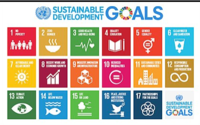
The United Nations Member States adopted the 2030 Agenda aiming at peace, prosperity and the preservation of ecosystems and the climate. To reach the Seventeen Sustainable Development Goals (SDGs) of the agenda targeted action on the local level is...
Details »
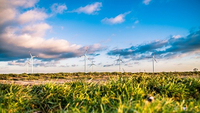
Within the framework of Sustainable Development Goals (SDGs), the international community strives for economic progress and social justice within ecological boundaries. The SDGs consist of 17 equal goals, including "clean and affordable energy",...
Details »
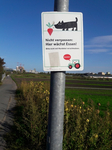
The Stuttgart Region, as an association of the state capital with five economically strong districts in the immediate vicinity, has good agricultural production conditions in a state-wide comparison. The proportion of intensively used agricultural...
Details »

The project "Globally Sustainable Community (GNK)" Palatinate supports municipalities in the Palatinate Forest in the local implementation of the 17 SDGs of the Agenda 2030. In this context, the IfLS Consulting and Projects in a cooperation with the...
Details »

Every ten years, UNESCO reviews whether their recognised biosphere reserves may also retain their designation. The biosphere region Berchtesgadener Land was recognised as a biosphere reserve by UNESCO in 1990, successfully passed the first periodic...
Details »
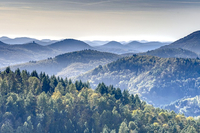
With the Sustainable Development Goals (SDGs), the international community of states agreed on global sustainability goals. Building on this, biosphere reserves (BR) have committed themselves in the Lima Action Plan to make their own, concrete...
Details »
With regard to the biodiversity goals 2020 this study analyzes the biodiversity protection potentials of various agricultural policies. The study is carried out by the Institute for European Environmental Policy (IEEP). As subcontractor the IfLS will...
Details »
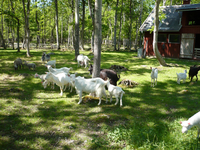
The European MIXED project aims to promote the development of mixed agricultural and agroforestry systems in Europe in the face of more extreme weather conditions. It is studying the benefits of these systems in terms of climate, environment and...
Details »
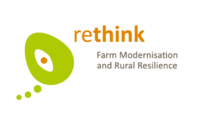
A transdisciplinary research project supported by the European Commission and national funding bodies under the umbrella of FP7 and the RURAGRI ERA-NET
Important questions need attention: How do market forces, societal demands and resource...
Details »
In cooperation with the Institute for Spatial Planning and Development Planning (IREUS) at the University of Stuttgart, the Institute for Rural Structural Research (IfLS) is developing an integrative landscape model based on the example of the...
Details »
With regard to the biodiversity goals 2020 this study analyzes the biodiversity protection potentials of various agricultural policies. The study is carried out by the Institute for European Environmental Policy (IEEP). As subcontractor the IfLS will...
Details »

Since April 1, 2018, 'Education for Sustainable Development' has been a further statutory task of nature parks in Germany in accordance with § 27 of the Federal Nature Conservation Act. Nature parks are to convey the nature park objectives, contents...
Details »

In accordance with the criteria of the National Committee for UNESCO Global Geoparks in Germany, the Bergstraße-Odenwald Geo-Nature Park is developing a strategic-didactic concept for the future orientation and design of the ESD (Education for...
Details »

With the Sustainable Development Goals (SDGs), the international community of states agreed on global sustainability goals. Building on this, biosphere reserves (BR) have committed themselves in the Lima Action Plan to make their own, concrete...
Details »
Environmental indicators are used for describing the environmental situation, its threats and possible trends. In recent years different indicator concepts have been developed at the international and national levels. The research project is...
Details »
In mid-2022, the German Research Foundation (DFG) invited interested scientists from sub-Saharan Africa and Germany to identify common interests in the field of agriculture and to cooperatively develop new projects within the framework of the...
Details »








